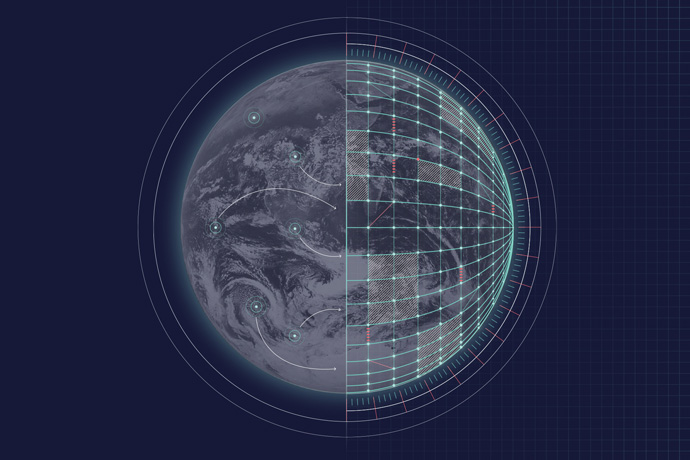
Due to technical issues, we have to postpone the seminar. We will update you on a new date. Please accept our apologies.
Host
Irina Sandu (ECMWF)
Speakers
Bjorn Stevens (Max Planck Institute for Meteorology)
Vincent-Henri Peuch (ECMWF)
Background
The European Union (EU) plans to be climate neutral by 2050. For its green transition, the EU plans to fund the development of digital twins of the Earth. For these twins to be more than big data atlases, they must create a qualitatively new Earth system simulation and observation capability using a methodological framework responsible for exceptional advances in numerical weather prediction.
Developing next-generation models to produce high-resolution digital twins of the Earth is an area of focus in ECMWF’s Strategy 2021-30.
Seminar description
This seminar is part of our Science and Technology Seminar Series. Within this series there will be a set of talks that will focus on the development of digital twins.
Presentation abstracts
Bjorn Stevens
Progress in climate modelling is most evident through its incorporation of additional processes, which allow the models to be applied to a wider range of questions. Efforts to increase the physical fidelity of the simulations continues to be frustrated by an inability of existing models to explicitly represent processes on the scales at which they are either understood or observed. Whereas numerical weather prediction has quietly increased its social utility through more accurate short- to medium-term forecasts of devastating extreme events such as floods, hurricanes, droughts and wind-storms, climate scientists have struggled to similarly improve the regional fidelity of their projections, even when using high-resolution downscaling techniques. A real breakthrough in our ability to predict how the climate will change at regional scales is now in reach. This is largely possible due to the latest advances in supercomputing, including the emergence of exascale computing, and to the substantial efforts made in the last years in Europe to adapt our weather and climate modelling capabilities and their underlying infrastructures to novel supercomputing architectures.
Vincent-Henri Peuch
ECMWF has been entrusted by the European Union to operate two of the six thematic core Copernicus Services: The Copernicus Climate Change Service (C3S) and the Copernicus Atmosphere Monitoring Service (CAMS). Both Services are integral components of the Copernicus Programme; Copernicus is the European Union’s Earth Observation Programme, which monitors our planet and its environment for the ultimate benefit of the citizens of Europe. Within this Programme, the mission of C3S is to support society by providing authoritative information about the past, present and future climate in Europe and the rest of the World, while CAMS provides consistent and quality-controlled information related to air pollution and health, solar energy, greenhouse gases and climate forcing, everywhere in the world.
Copernicus Services at ECMWF are combining observations from satellites (Copernicus Sentinels and third part missions) and in-situ networks, as well as numerical models to provide environmental services to their users. They are therefore heavily relying on the scientific excellence in Europe and worldwide, be it within academia, modelling centres, space, environmental and meteorological agencies.
The seminar will describe the complementarity between Copernicus and Destination Earth (DestinE) and how Destination Earth, which indeed ambitions to boost modelling and predictive capacities, in particular with the envisaged digital twins, can take advantage of the Copernicus infrastructure while boosting the science underpinning the various components of Copernicus services.
Attendance
Pre-registration is not required. Follow this link to join the seminar.